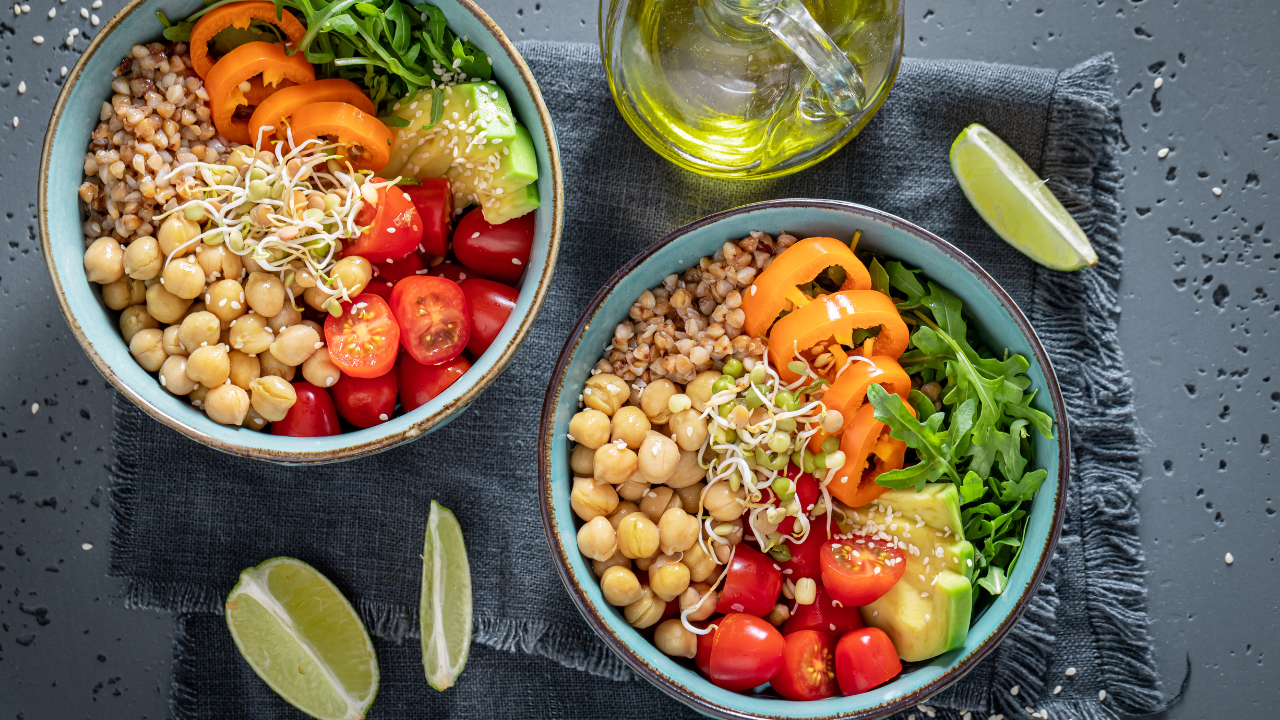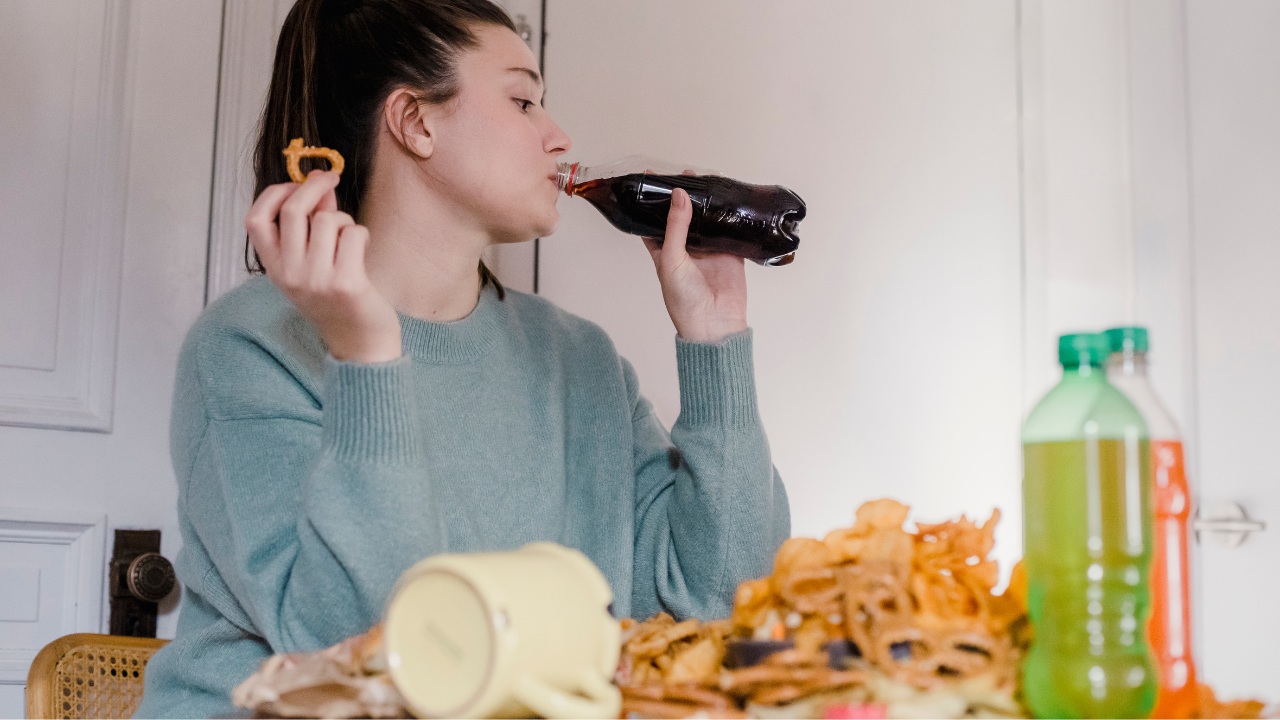How to Reject the Diet Mentality - Intuitive Eating Principle 1
There are ten principles of Intuitive Eating, the first being “Reject the Diet Mentality”. Ditching the idea of quick weight loss and working to remove yourself from diet culture is going to be essential in order to rediscover intuitive eating. But how can we reject the diet mentality, especially when there are always new diets around the corner?
If you’re new here, hello and welcome! My name is Hannah and I am a non-diet dietitian here to help you improve your relationship with your food and finally find food freedom.
Not dieting can feel scary
Diets don’t work. You may have heard that before (especially if you have been following me for awhile). But even if you know that diets aren’t serving you, it can feel like you are jumping off the deep end by abandoning them. There are a few common fears around ditching the diets:
If I’m not dieting, I won’t stop eating
This may come as a surprise, but dieting is likely what is triggering the overeating. Diets often involve not eating enough, which your body views as problematic.
In order to protect you from starvation, you may notice that you feel hungrier when you diet. This is not a bad thing! This response is your body’s way of protecting you. Once you reject the diet mentality and start to adequately fuel your body, the drive to overeat will decrease. But you must first restore mutual trust by honoring your hunger.
If I’m not dieting, I won’t know how to eat
Eating without rules can be nerve wracking! How will you know which foods to choose and what size portion to consume?
Over time, your body’s innate signals will guide your eating and you will be responding to internal cues rather than external rules. This won’t happen overnight. If you have been reliant on diet rules for a while, you may not have a great grasp on your hunger and satiety cues right away. With practice and grace towards yourself, you will eventually build confidence in eating in response to inner signals.
If I’m not dieting, I will feel out of control
Control is not an issue with intuitive eating. You will learn to trust your inner wisdom and you won’t need to rely on motivation or willpower any more. Because you will not be underfed, you will no longer be reacting to deprivation. This will lead to you making informed and empowered decisions for your body. You know your thoughts, experiences, feelings, and preferences way better than a diet ever could!
The temptation of doing one last diet
You may experience some FOMO when you reject the diet mentality. Depending who you surround yourself with, everyone around you may be talking about the current diet or weight loss plan that they are on and you may feel like you aren’t able to join in on the conversation. It can feel tempting to just do one last diet because in the beginning, dieting is often exciting and exhilarating! But remember how dieting always ends up making you feel - defeated, desperate, and with a worsened relationship with food.
Pseudo-dieting
Pseudo-dieting (or unconscious dieting) is when you have “given up dieting”, but some diet-like behaviors still remain. Pseudo-dieting will lead to the same dieting side-effects, but they are often not as apparent to the individual engaging in the behaviors. Here are some examples of pseudo-dieting:
Eating rigidly healthy with inflexible eating patterns
Second guessing or judging what you deserve to eat
Eating only "safe" foods
Punishing yourself for eating "bad" foods
"Covering up" hunger with diet soda or coffee
Performative eating (eating to please the expectations of others)
Eating only at certain times of the day
Cutting out foods for the sake of losing weight, such as gluten, meat, or dairy. Example - becoming vegetarian or vegan for weight loss purposes
How to reject the diet mentality
Now that we understand the different components to ditching the diets, let’s discuss which steps to take next.
Recognize and acknowledge the damage that dieting does
Dieting can (see: will) lead to negative effects biologically, psychologically, and emotionally. It will be helpful to keep these diet pitfalls in mind next time you are considering hopping on the newest diet trend.
Biological effects of dieting:
Decreased metabolic rate
Increases in binges and cravings
Increases the risk of premature death and heart disease due to weight cycling
Atrophy of satiety cues
Teaches the body to retain more fat when you start eating again
Headaches, fatigue, hair loss, menstrual irregularities, dry skin
Psychological and emotional effects of dieting:
Increased risk of eating disorders
Cause stress or increase vulnerability to stress
Feelings of failure, lowered self esteem
Erosion of confidence and self trust
Increases in cravings and preoccupation with food
Be aware of diet mentality traits and ways of thinking
One example of diet mentality is the mindset of “just needing more willpower and self control”. Willpower is not necessary for intuitive eating. Willpower implies the ability to do unpleasant tasks that are not essential. Eating is essential and it is meant to be enjoyable. As already discussed, dieting is a trigger for overeating and willpower just isn’t going to cut it.
Another example of a diet-culture infested thought is “you shouldn’t be eating that” when you are enjoying a forbidden food. Being told what to do (or not to do) is often a trigger for rebellion. Think of it this way - when you tell a child not to do something, what do they immediately try to do? Whatever you told them not to do!
Nobody can be the expert of “you”. How can a diet, influencer, or app know when you are hungry and what foods satisfy you? Only you can be responsible for when, how much, and what you eat.
Get rid of the dieter’s tools
The scale, diet apps, diet books and magazines, social media influencers that you follow - remove them all from your life!
Be compassionate towards yourself
Don’t beat yourself up for wanting to go on a diet. They are so appealing from the outside! Even if you are fully aware that diets don’t work, there can still be lingering temptation to hop on to the next trend that promises quick results. Remember that this journey is not “pass-fail” - it is a lifelong journey of self-discovery.
Up next
Intuitive Eating principle 2 - Honor Your Hunger

































